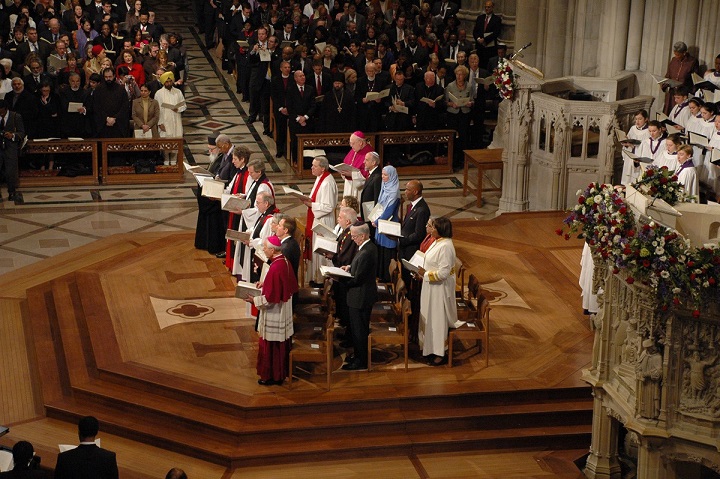Institute on Religion & Democracy Press Release
January 19, 2017
Contact: Jeff Walton Office: 202-682-4131, Cell: 202-413-5639, E-mail: jwalton@TheIRD.org
“In a highly polarized America where identity politics often trump unity and the public good, the venerable tradition of civil religion seems more needed and important than ever.”
-Mark Tooley, IRD President
Washington, DC—Washington National Cathedral will host an inaugural prayer service this Saturday that President Donald Trump will attend. Despite objections from some within the Episcopal Church, including the Cathedral’s former dean, Presiding Bishop Michael Curry has defended the rectitude of churches praying specifically for the new President.
Inaugural prayers began under Franklin Roosevelt, who appealed to the craft of civil religion. Across nearly 70 years the clergy at inaugurations have been Mainline Protestants, Catholics, Jewish rabbis, and evangelicals like Billy Graham. Mainline Protestants, however diminished, continue to bolster American civil religion.
Bishop Curry noted that the Episcopal Church’s liturgy traditionally includes prayers for “those who bear the authority of government,” as the Bible admonishes the faithful to pray for kings and all in power. He recalled that the black congregation in which he grew up prayed for political leaders on both sides of civil rights. And he explained that “when we pray for [political leaders], we are actually praying for our nation, for our world, indeed we are praying for ourselves.”
IRD President Mark Tooley commented:
“Bishop Curry’s observations should be instructive for a growing number of American Christians, both conservative and liberal, who are discomfited by American civil religion.
“Inaugural prayers have become one of the rites of American civil religion.
“The original Protestant architects of American civil religion crafted it as an innovative blend of civic and private piety. Unity is sought in the common pursuit of transcendent purpose for the public good.
“In a highly polarized America where identity politics often trump unity and the public good, the venerable tradition of civil religion seems more needed and important than ever. That this tradition is sufficiently flexible to include prosperity preachers, rabbis, Catholic bishops, evangelicals and many others who don’t typically coalesce is a confirmation of its strength.”
No comments yet




